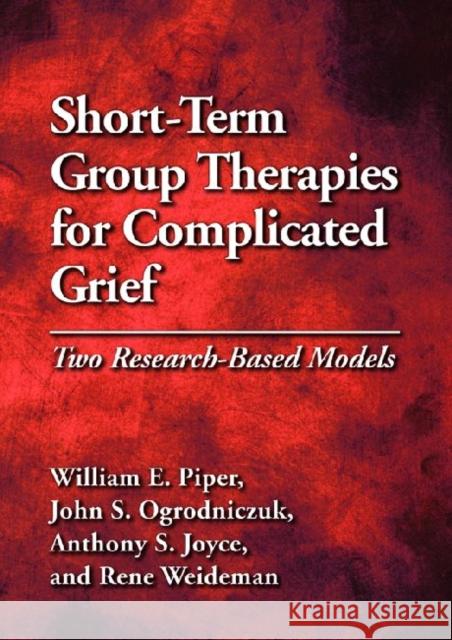Short-Term Group Therapies for Complicated Grief: Two Research-Based Models » książka
Short-Term Group Therapies for Complicated Grief: Two Research-Based Models
ISBN-13: 9781433808432 / Angielski / Twarda / 2010 / 288 str.
Although a certain amount of grief is expected and normal following the loss of a loved one, many people experience particularly intense and/or long-lasting grief, or complicated grief (CG). Up to 20% of acutely bereaved individuals and 33% of psychiatric outpatients suffer from CG. Furthermore, as the baby boom generation ages, the number of people experiencing CG will likely increase. One of the most cost-effective, research-supported treatments for CG is short-term group therapy. This approach not only treats more patients with fewer resources, but also capitalizes on the unique and powerful therapeutic factors associated with group therapy. Over the past 22 years, William Piper and colleagues have developed and tested two models for treating CG with short-term group therapy. Extensive randomized, controlled clinical trials have demonstrated significantly higher effect sizes for the model treatments than other CG treatments, including individual therapy approaches. This book begins with a meticulous, comprehensive review of research related to CG, including prevalence, risk factors, effects of patient characteristics and group composition on therapeutic outcome, and mechanisms of change in group therapies for CG. The chapters also describe how the two models were developed and tested. Finally, the book explains how to administer the models, including assessing patients, forming groups, preparing group members for treatment, and running and terminating the group. This book is essential reading for all clinicians and researchers interested in CG, group therapy, and short-term therapy, as well as administrators and managers responsible for the delivery of healthcare services.











